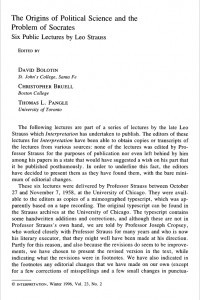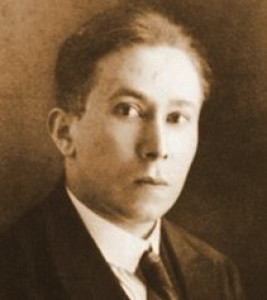
The Origins of Political Science and the Problem of Socrates: Six Public Lectures
Описание книги
For according to Plato as well as to Aristotle, to the extent to which the human problem cannot be solved by political means it can be solved only by philosophy, by and through the philosophic way of life. Plato too presents men who are not good or who are then bad, but he does this only to present all the more clearly the character of the good men, and this is his chief theme. Poetry, however, presents only such human beings for whom the philosophic life is not a possibility. From Plato’s point...
For according to Plato as well as to Aristotle, to the extent to which the human problem cannot be solved by political means it can be solved only by philosophy, by and through the philosophic way of life. Plato too presents men who are not good or who are then bad, but he does this only to present all the more clearly the character of the good men, and this is his chief theme. Poetry, however, presents only such human beings for whom the philosophic life is not a possibility. From Plato’s point of view the life which is not philosophic is either obviously incapable of solving the human problem or else it does solve the human problem in a wholly inadequate or in an absurd manner. In the first case it is the theme of tragedy. In the second case it is a theme of comedy. From here we may understand why it is according to nature that philosophy delegate to poetry a ministerial function, a function which philosophy itself cannot fulfill. Poetry presents human life as human life appears if it is not seen to be directed toward philosophy. Autonomous poetry presents non-philosophic life as autonomous. Yet by articulating the cardinal problem of human life as it comes to sight within the non-philosophic life, poetry prepares for the philosophic life. Poetry is legitimate only as ministerial to the Platonic dialogue which in its turn is ministerial to the life of understanding. Autonomous poetry is blind in the decisive respect. It lives in the element of imagination and of passion, of passionate images, of passion expressing itself in images which arouse passion and yet modify passion. It ennobles passion and purifies passion. But autonomous poetry does not know the end for the sake of which the purification of passion is required. Книга «The Origins of Political Science and the Problem of Socrates: Six Public Lectures» автора Лео Штраус оценена посетителями КнигоГид, и её читательский рейтинг составил 8.60 из 10.
Для бесплатного просмотра предоставляются: аннотация, публикация, отзывы, а также файлы для скачивания.
- Просмотров: 117
- Рецензий: 0
- Переводчики: не указаны
- Серия: No. 2
- ISBN (EAN): не указаны
- Языки: не указаны
- Возрастное ограничение: не указано
- Год написания: 1996






Рецензии на книгу
Написано 0 рецензий